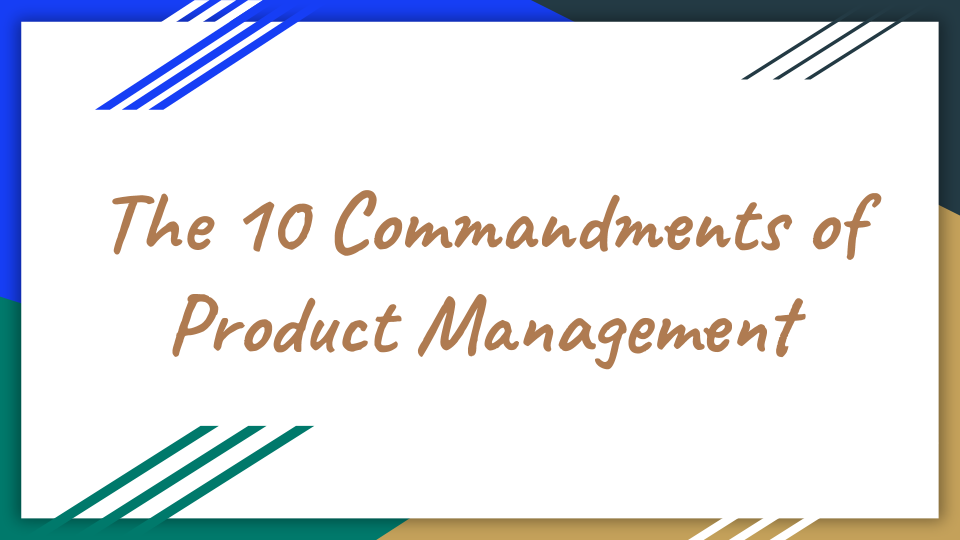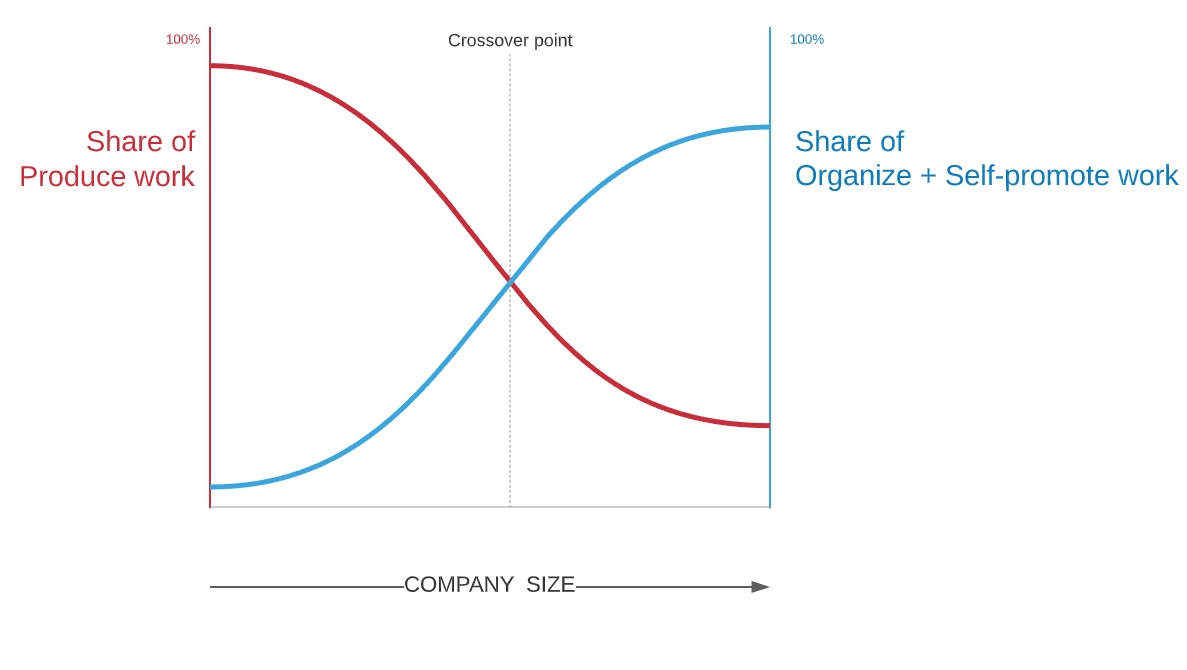
You (at a project status meeting):
Project ABC's status is Yellow
Need [X] more resources to get it back on track.
Your Manager’s Manager (YMM):
We need to zoom out first
I would like to see a doc [or slides] with our strategy, roadmap & resourcing requests for Project ABC.
👇🏾
Project ABC's status is Yellow
Need [X] more resources to get it back on track.
Your Manager’s Manager (YMM):
We need to zoom out first
I would like to see a doc [or slides] with our strategy, roadmap & resourcing requests for Project ABC.
👇🏾
You:
OK, I have to deal with Acme Inc this week but can get that to you by next Friday
YMM:
Hmm… we really need this sooner.
Can you share by Monday instead?
You: (🤔this must be important for YMM, so I should do what’s being asked)
OK, will do
👇🏾
OK, I have to deal with Acme Inc this week but can get that to you by next Friday
YMM:
Hmm… we really need this sooner.
Can you share by Monday instead?
You: (🤔this must be important for YMM, so I should do what’s being asked)
OK, will do
👇🏾
[On Monday]
You: (📨in email to YMM, cc’ing your manager)
Dear YMM, here’s the document you requested in last week's status meeting. Please let me know your feedback. I am happy to meet and discuss this further so we can proceed with the revised plan for Project ABC.
👇🏾
You: (📨in email to YMM, cc’ing your manager)
Dear YMM, here’s the document you requested in last week's status meeting. Please let me know your feedback. I am happy to meet and discuss this further so we can proceed with the revised plan for Project ABC.
👇🏾
[On Tuesday]
*crickets*🔇
[On Wednesday]
*crickets*🔇
[Every Day, for what feels like an eternity]
*crickets*🔇
👇🏾
*crickets*🔇
[On Wednesday]
*crickets*🔇
[Every Day, for what feels like an eternity]
*crickets*🔇
👇🏾
[15 days after you sent the email]
YMM (📩in email):
Thank you & sorry about the delay. This is helpful.
[goes on to make a comment about a trivial aspect of your proposal, doesn’t suggest any next steps nor commits to the resources you requested 3 weeks ago]
👇🏾
YMM (📩in email):
Thank you & sorry about the delay. This is helpful.
[goes on to make a comment about a trivial aspect of your proposal, doesn’t suggest any next steps nor commits to the resources you requested 3 weeks ago]
👇🏾
You: (saying to yourself)
I have made such bad choices in life😢
THE END
I have made such bad choices in life😢
THE END
Does this sound familiar?
Hurts to admit, but I've been on both sides of this.
If there's interest, I'll follow up with a dissection of why YMM behaves in this seemingly arbitrary manner, where the problem lies (hint: it isn't one-sided), and ideas for mitigating this.
Hurts to admit, but I've been on both sides of this.
If there's interest, I'll follow up with a dissection of why YMM behaves in this seemingly arbitrary manner, where the problem lies (hint: it isn't one-sided), and ideas for mitigating this.
• • •
Missing some Tweet in this thread? You can try to
force a refresh




